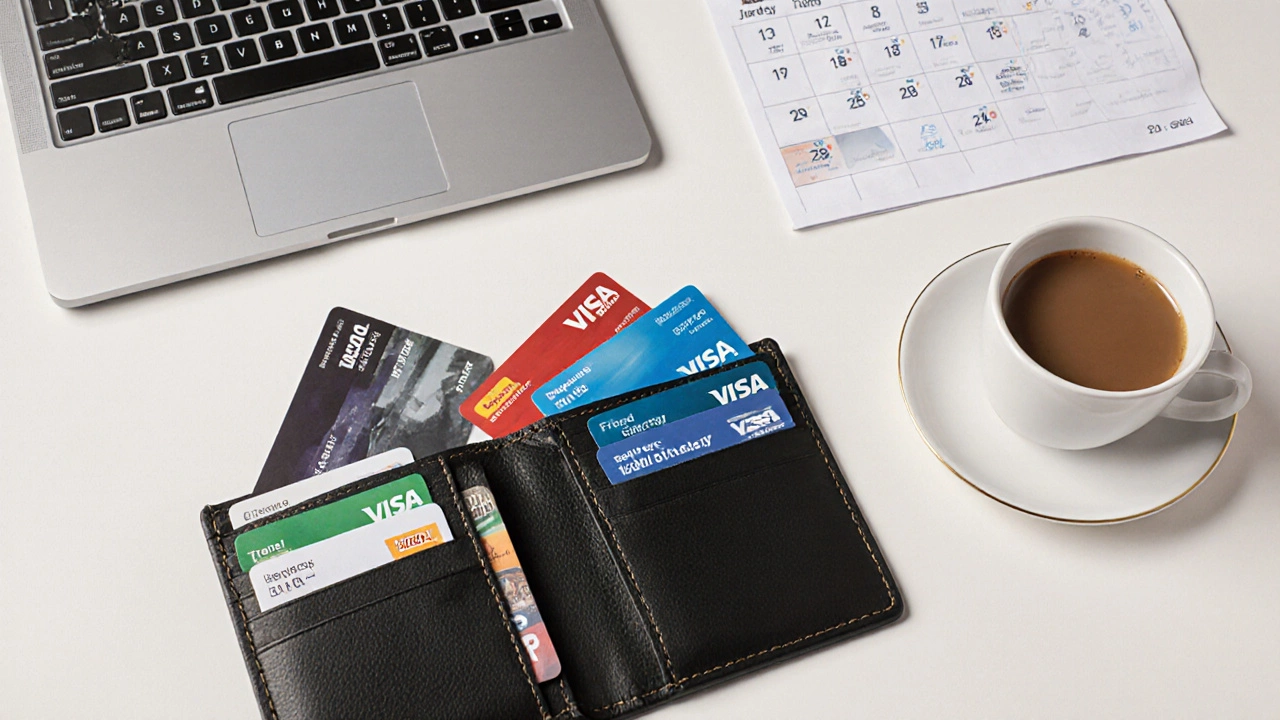Number of Credit Cards: How Many Is Too Many?
When it comes to number of credit cards, the total count of active credit accounts a person holds, often tracked by credit bureaus as part of credit history. Also known as credit card utilization rate, it’s not just about how many you have—it’s how you use them. Having too few can limit your credit options, but having too many can hurt your score, increase temptation to spend, and make it harder to track payments. The right number isn’t a magic number like 3 or 5—it’s the number that fits your spending habits, income, and ability to manage debt.
Many people think more cards mean better rewards, but that’s only true if you pay them off every month. If you’re juggling five cards and missing one payment, your credit score, a three-digit number that lenders use to judge your reliability in repaying debt. Also known as FICO score, it takes a hit fast. Your credit utilization, the percentage of your total available credit that you’re currently using. Also known as credit usage ratio, it matters more than the count. If you have £10,000 in total limits and you’re spending £8,000, you’re at 80% utilization—way above the 30% sweet spot lenders like. Even with just two cards, high utilization tanks your score. On the flip side, having five cards with low balances can actually help your score by keeping utilization low.
The credit card limits, the maximum amount a lender allows you to borrow on each card. Also known as credit line, it you’re approved for plays a big role. A higher limit gives you breathing room, but only if you don’t spend more. People who open cards for sign-up bonuses often end up with cards they never use—then wonder why their credit report looks messy. Closing unused cards can backfire by lowering your total available credit and increasing utilization. Better to keep them open, use them lightly once a month, and pay in full.
There’s no one-size-fits-all answer. A freelancer with irregular income might do better with one or two cards they can fully control. A salaried professional with strong discipline might handle four or five without issue. The key is knowing your own behavior. Do you track every purchase? Do you pay on time, every time? If yes, more cards can be a tool. If you’ve ever missed a payment or carried a balance, fewer cards are safer. Your credit card management, the practice of monitoring, using, and paying off credit accounts responsibly. Also known as credit discipline, it is what really matters—not the number on paper.
Below, you’ll find real advice from people who’ve been there—whether it’s how to handle the Chase 5/24 rule, why closing a card isn’t always smart, or how to use multiple cards to lower your utilization without overspending. These aren’t theory pieces. They’re practical fixes from UK finance leaders who’ve seen what works—and what blows up.

Having four credit cards isn't automatically bad-it's how you use them that matters. Learn when multiple cards help your credit score and when they become a financial burden.
Read More